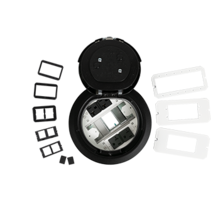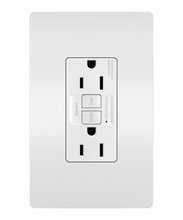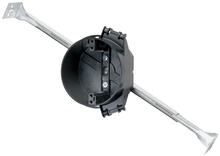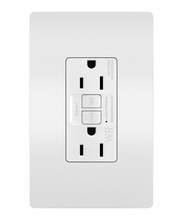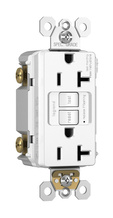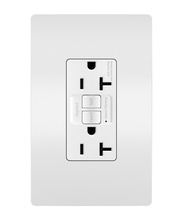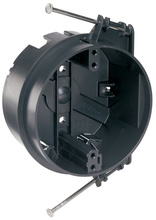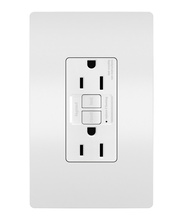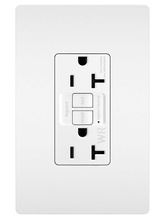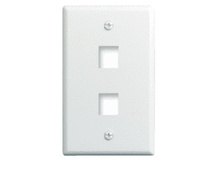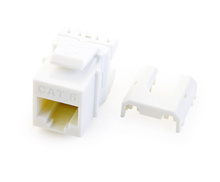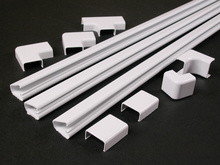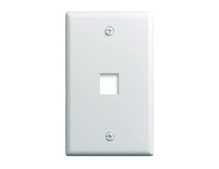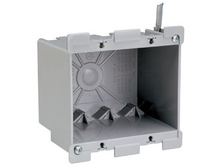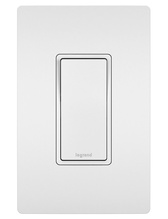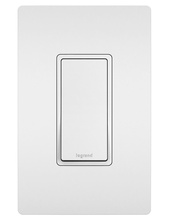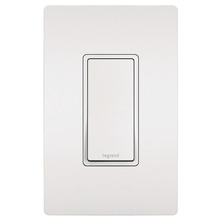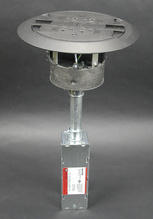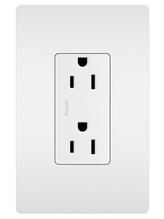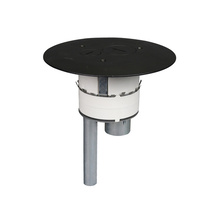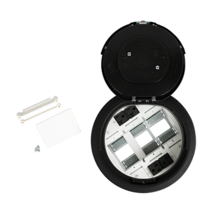Type
Value that Specifically Names the Type/the Application Value of the Closest Piece of Equipment/the Designated Type of Construction/the Generic Type/the Manufacturer Type Designation/the Specific Function/the Type of Application
Product Certifications
Trust in quality and compliance. Use this filter to find products that have undergone thorough testing and evaluation to ensure they meet the quality and safety standards for a wide range of certifications.
Standard
The industrial standard(s) to which a device is manufactured, operated, or tested.
Coil Voltage
The Electrical Pressure, the force Which Causes Current to Flow Through a Conductor
Base Type
Style or Type of the Foundational Ingredient of Something.
Connector
A Device that Establishes a Connection Between Two or More Units.
Number of Receptacles
The Number of Electrical Wall Outlets Designed for Use with a Plug
Cable Entry
The Type/Specification of the Access Points Where the Cables are Made to Enter or Exit.
Is the Device Prewired?
Denotes whether a product comes prewired for quicker installation.
Frequency Band
A Continuous Group, or Range, of Frequencies with an Upper Limit and a Lower Limit
Sensor Type
The Device that Receives a Signal or Stimulus (As Heat or Pressure or Light or Motion Etc.) and Responds to it in a Distinctive Manner
Amperage
Maximum electrical current the conductor or device can carry before sustaining immediate or progressive deterioration
Installation Location
Where a Device is or is to be Installed
Mounting
Something that Serves as a Support, Setting, or Backing for the item
Connector Type
The Type of Connectors / Terminals that Tool can Crimp to Wire or Cable
Attenuation
The Decrease in Magnitude of a Signal as it Travels Through any Transmitting Medium, Such as a Cable or Circuitry the Ability of a Filter Circuit to Reduce the Amplitude of Unwanted Frequencies to a Level Below that of the Desired Output Frequency
NEMA Rating
National Electrical Manufacturers Association Ratings are Standards that are Useful in Defining the Types of Environments in Which an Electrical Enclosure can be Used
Lamp Length
The Type of Device Designed to Produce Electromagnetic Radiation in the form of Light, Heat, Ultraviolet Energy, or a Combination of the Three.
Contact Rating
The Voltage, Current, and Power Capacities of Relay Contacts Under Specified Environmental Conditions
Cable Type
The Type of a Assembly of one or More Insulated Conductors, or Optical Fibers
Phase
The Factional Part of the Period of a Sinusoidal Wave, Usually Expressed in Electrical Degrees and Referenced to the origin
Core Hole Size
Physical Dimensions of the hole
Insertion Loss
The Loss in Load Power Due to the Insertion of a Component or Device at Some Point in a Transmission System
Dielectric Strength
Measure of the Electrical Strength of a Material as an Insulator, the Maximum Electrical Potential Gradient that a Material can withstand without Rupture, the Higher the Dielectric Strength of a Material the Better its Quality as an Insulator
Compatibility
Capability of Being Used with or Connected to Different Types of Devices or Components without any Modifications
Is Tamper-Resistant
Tamper resistance is resistance to tampering (intentional malfunction or sabotage) by either the normal users of a product, package, or system or others with physical access to it.
Number of Gangs
The amount of switches on the plate.
Connection
Between Discrete Points Allows the Flow of Electrons (Electric Current)
Connector
Refers to the specific types of connections a device uses to join electrical conductors and create an electrical circuit. When you select the first desired connector, a second filter will appear listing any connectors on the opposite end of your selected connector on a device.
Antenna
A Conductor or Set of Conductors Used to Radiate RF Energy Into Space or to Collect RF Energy from Space or to Do Both
Temperature Rating
The Designated / Rated / Maximum / Range Temperature at Which the Instrument May be Used in Continuous Operation without Loss of its Basic Properties and performance
Is Weather Resistant
Is this product listed as Weather Resistant ?
Contact Configuration
Different Switching Functions of the Relay Contacts
Capacity
The Load for Which a Generating Unit, Generating Plant or Other Electrical Apparatus is Rated Either by the User or by the Manufacturer, Electrical Phenomenon Whereby an Electric Charge is Stored
Insulation Resistance
The Resistance offered by an Insulating Material to Current Leakage
Frequency Rating
The Number of Occurrences within a Given Time Period, the Rate at Which Alternating Current Makes a Complete Cycle of Reversals
Shape
The Type/Cross-Sectional Shape/Design/Geometric Shape/Physical Appearance of the item
Indoor/Outdoor
Enviromental Conditions rating on the product. Indoor Only, Outdoor, Both
Number of Ports
The Number of Application-Specific or Process-Specific Software Construct Serving as a Communication Endpoint / is Generally a Specific Place for Being Physically Connected to Some Other Device /A Number of Physical Access Point(S) Between a Conductor and
Input Voltage
The Difference of Electrical Potential Between Two Points of an Electrical or Electronic Circuit Entering a System
Number of Wires
The Number of Pliable Metallic Strand or Rod Made in Many Lengths and Diameters and are Electrically Insulated, Used Conduct Electricity
Bracket
The Type of Support, as of Metal or Wood, Projecting from a Wall or the Like to Hold or Bear the Weight of a Shelf, Part of a Cornice, Etc.
Timing Range
The Time Span for Which the System/Device is in Desired Active/Working Mode
Availability
Product is available to buy on Legrand.us
Thickness
The Dimension Through an Object as Opposed to its Length or Width
Output Voltage
The Voltage Measured at the Output Terminals of a Power Supply
Number of Outlets
The Different Types of Receptacles Providing a Place in a Wiring System Where Current can be Taken to Supply Electrical Devices
Number of Pins
The Number of Connecting Links/Pins Designed for Connecting the Device to Various Types of Signals, Input, Output, Power
Mounting Type
The way the item is mounted for display. The method by which a sign or label is affixed to a surface for display. Many signs will not have any defined mounting type and so will have no value captured for this attribute.
Connectivity
Measure of the Extent to Which the Components (Nodes) of a Network are Connected to one Another, and the Ease (Speed) with Which they can 'Converse'
Number of Buttons
The Number of Keys/Switches in the item Used for Selecting a Particular Function
Dimmer
Devices Used to Vary the Brightness of a Light by Decreasing or Increasing the Rms Voltage and Hence the Mean Power to the Lamp it is Possible to Vary the Intensity of the Light Output
Number of Knockouts
How many knockouts are there in the product
Current Rating
Maximum Amount of Current a Cable can Carry Before Sustaining Damage or Deterioration
Sensitivity
The Minimum Input Which the Device can Sense and Produce the Output
Number of Ways
The Number of Connections the Unit can Provide
Number of USBs
Number of USB ports
IP/Analog
Indicates Whether the System is analog or Network Connected
Wall Plate Color
Color of the Plate that Covers a Switch on a Wall
Contact
A Device that Joins Electric Conductors Mechanically and Electrically to Other Conductors and to the Terminals of Apparatus and Equipment
Maximum Wattage
Greatest Amount of Power in Watts
Number of Circuits
The Number of Networks that Has a Closed Loop, Giving a Return Path for the Current
Has Battery
A Device for Converting Chemical Energy Into Electrical Energy a Group of Two or More Connected Voltaic Cells
Knockout Size
Physical dimension of the knock-out size, could be diameter or a range
Response Frequency
Frequency response is the quantitative measure of the output spectrum of a system or device in response to a stimulus, and is used to characterize the dynamics of the system. It is a measure of magnitude and phase of the output as a function of frequency, in comparison to the input.
Form Factor
The Size, Configuration, or Physical Arrangement of the Unit
IDC Wire Gauge
Rack Units Rack Units_030104
Unit Used to Describe the Height of Equipment Intended for Mounting
Enclosure Type
Style, Type, Size, Etc. of the Enclosure of a Device
Load Capacity
The Greatest Amount of Loading that a Instrument can Receive without Violating Quality Standards
Construction
The Act or Process of Constructing Which Includes Design and Manufacture Type
Handle Type
The Type/Shape of the Part that is Designed to be Held or Operated with the Hand
Number of Conductors
The Number of Materials/Strands/Pairs Which Contain Movable Electric Charges
Data Transfer Rate
The Speed at Which Data is Transferred from one Location to Another with in the Time Frame
Plating Specification
Shielded/Unshielded
Denotes whether a cable is designed with an extra layer of metal foil or braid surrounding the inner conductor to protect against electromagnetic interference (EMI).
Power Supply
The Specification of the Electrical Power or the Description of This Electrical Power Which is Required for the Proper Functioning of the item
Number of Channels
The Number of Media Used to Convey Information
Cord Length
The Linear Extent of Cord in Space from one End to the Other
Orientation
The Position or Alignment Relative to Points of the Compass or Other Specific Directions
Impedance
A Material's Opposition to the Flow of Electric Current
Simplex/Duplex
A Communications Network can Provide one-Way / Multi-Way Communication Service
NEMA Configuration Code
Alpha-Numeric Code Applied to Connectors to Guarantee Consistency and Interchageability Between Manufacturers
Speed Range
The Distance Traveled/Number of Revolutions in a Specific Interval of Time
Load Rating
The Maximum Load that a Device is Designed to withstand without Breakage or Loss of performance
Battery
A Device for Converting Chemical Energy Into Electrical Energy a Group of Two or More Connected Voltaic Cells
Encryption
The Activity of Converting Data or Information Into Code
Response Time
The Time of System or Functional Unit Takes to React to a Given Input.
Contact MaterialTooltip Title
A Material Used for Making and Breaking an Electrical Contact, or for Providing Constant or Sliding Contact
Connection TypeTooltip Title
Style or Type of Connection Used
Product Family
Used to identify and differentiate offerings within a particular product line. Product families are typically treated as adjectives. It is not recommended to use the product line (ex: Wiremold®) and product family names (Evolution™) together. This will introduce a level of unnecessary confusion for the audience.
Conductor Range
The Size Range of the Metal Wires and Cables that Allow the Flow of Electrical Current
Conductor Material
The Material of Current Carrying Member of the Cable
Lighting Types
Different forms of light a device is able to provide.
Receptacle Type
The physical character of a Receptacle. The Type/Specification of a Contact Device Installed at the Outlet for the Connection of an Attachment Plug a Single Receptacle is a Single Contact Device with No Other Contact Device on the Same Yoke a Multiple Receptacle is Two or More Contact Devices.
Protocol
A Convention or Standard that Controls or Enables the Connection, Communication, and Data Transfer Between Two Computing Endpoints, the Rules Governing the Syntax, Semantics, and Synchronization of Communication
Target Size
The Dimensional Specification of the Object Which is Set as a Target for the Sensor
Lumens
The Unit of Luminous Flux, Used to Measure the perceived Power of Light
Fire Rating
The Period of Time a Building or Building Component Maintains the Ability to Confine a Fire or Continues to perform a Given Structural Function or Both, as Determined by Tests Prescribed in Section 703
Sensing Range
The total Possible Sensing Capability of the Sensor, Beginning After the Deadband, and Extending Out as Far as the Sensor is Able to Reach Effectively
Voltage
The Rate at Which Energy is Drawn from a Source that Produces a Flow of Electricity in a Circuit
Operating Temperature
The Temperature at Which the Unit is Safely Operated or Kept without Damaging or Changing the performance Characteristics of the Unit
Included
The Supplementary items Supplied with the Product Which May be Necessary for the Optimum Operation of the Product
Supply Voltage
The Specified Amount and Type Voltage / Voltage Range for Which the Equipment is Rated for Operation
Product Has Potential to Contribute to LEED
This product contributes to earning credits in the LEED rating system.
Wire Connection Type
Describes the method used to connect wires to the device, such as screw terminals, push-in connectors, or lead wires.
Shield Type
Describes the internal safeguards (or lack of) built into a cable, connector, or port to protect against electromagnetic interference (EMI) and improve data retention.
Operating Temperature Min
Indicates the lowest possible temperature a device can be safely used without the risk of failure or damage.
Battery Life
Describes the approximate amount of time a battery can power a device before it needs to be recharged or replaced.
Mobile End
Describes the connections/accessories attached to the portable end of a cable reel for enhanced mobility and ease of use.
Security Method
Describes the functions or methods used by a device or software to protect against unauthorized access to a device or software platform.
On Function
Describes the mode of operation for devices that can be turned on, indicating whether they stay on continuously or operate on a timer or sensor.
Number of Connections
Jacket Material
The outer material used to insulate a cord or cable's wiring.
Battery Capacity
Describes the maximum amount of electrical charge that a battery can store and deliver.
Engraving Type
Refers to the available styles to mark or inscribe text, symbols, or patterns on a product.
Adapter Color
Indicates the specific color of the fiber adapter, which can be used to indicate the use or keyed type of the adapter.
Seismic Tested
Indicates whether a device has been tested to withstand and/or perform under certain seismic conditions.
Rack Depth
Refers to the depth of a rack that is usable to support rackmount equipment.
Sensor Coverage
Describes the total area, measured in square footage, within which a sensor can detect presence or movement.
Maximum Cables Supported
Indicates the highest number of cables that can be accommodated given a product's specific design/construction.
Number of Strands
The total count of individual wires or filaments that are bundled together to form the cable or wire.
Panel Configuration
The specific layout and organization of the panels that house the fiber optic connections.
Antenna Pattern
Captures the directional representation of how radio waves are sent and received by the antenna.
Storage Temperature
Describes the temperature or range of temperatures at which a product can be safely stored or kept without damaging or altering the performance characteristics of the device.
Conductor Stranding
Indicates the configuration of wires used for electrical conduction. Solid conductors provide greater current capacity and increased durability, while stranded conductors provide greater flexibility.
Device Front Face Size
Describes the general proportions of a product's front face relative to the overall device.
Indicator
Describes the type/specification of signaling a device uses to indicate abnormal and/or operating conditions.
Antenna Gain
A calculated measure of how effectively an antenna sends or receives radio signals in a particular direction, measured in dBi (Decibals relative to isotropic).
USB Wattage
Describes the maximum electrical power a USB receptacle can safely output.
Connectivity Platform
A formfactor standard for compatible hardware within a connectivity system, determining what types of jacks, panels, adapters, cassettes, etc. that can be utilized within an enclosure or panel.
Cutout
Describes the available cutout styles on a product for either installing additional devices, or breaking and/or separating a portion of the circuit.
Braid
Indicates whether or not a device utilizes interwoven electrical wires to transfer current and/or signals.
Termination Style
The style of connection used for electrical termination between two devices.
Timer Type
The mechanism by which the timer operates, such as mechanical, digital, or programmable.
Frame
Describes characteristics of a device's frame that make it more suited for specific applications.
Fiber Size
The outer diameter of an optical fiber core, cladding and coating, expressing microns.
Dimming Compatibility
Describes the method(s) used by a device or system to adjust the brightness of a lighting load.
Bus Power Supply
Refers to the electrical power provided to a device through a common communication bus.
Max Distance Support
Refers to the maximum range a signal can be effectively supported to by a device.
Fiber Optic Cable Type
The different types and characteristics of fiber optical cable designed for specific applications.
Trim/Adjustment Level
A control feature that allows the adjustment of the minimum and maximum light levels to prevent issues such as flickering at lower brightness levels, ensuring smooth and stable dimming performance.
IEC Clock Position
The official label used to indicate the orientation of electrical connection points on an industrial plug or socket, as per the International Electrotechnical Commission (IEC) standards.
Durability
Indicates whether a device is designed for standard or rugged usage.
Topology
The arrangement in which the Nodes of a LAN are connected to each other.
Wall Plate Included
Indicates if the device comes with a cover plate for aesthetic integration with the wall.
Minimum Floor Depth
The minimum depth a floor must be in order to properly install the product.
Works With
Need to ensure your choice works with your device, system, or software? Select your needs using this filter to confirm compatibility.
Sensor Coverage Pattern
Describes the shape of the area that a sensor is able to detect presence or movement within, measured in degrees.
Dimming Phase
Refers to the point in the AC power cycle at which the dimmer begins to reduce voltage to the light. "Leading Edge" dimmers cut the initial phase and are typically used for incandescent bulbs, while "Trailing Edge" dimmers cut the end phase, which is more suitable for LEDs.
Tray Height
Refers to the approximate height of a cable tray used for specifying. Selecting a specific height will show cable trays with that height, as well as cable tray accessories compatible with that height.
Horsepower Rating
Refers to the power capacity of a device under normal load conditions, measured in horsepower (HP).
Current Draw
The amount of electrical current the device uses during operation, measured in amperes (or amps).
Configuration
Describes the specific arrangement and/or structure of a device's components.
Requires Neutral Wire
Indicates whether a device requires a neutral wire to function properly.
Mounting Hole Type
Describes the style of holes or openings used to either mount a device or mount to a device.
Flanged
Indicates whether a device is designed with a raised edge/rim, on or around its receptacle, for superior strength, handling, or attachment to another object.
Operating Humidity
Describes the range of humidity at which a device can be utilized safely without the risk of failure or damage.
Connection Location
Specifies where on the device the electrical connections are made, which can affect installation.
Jacket Application
Describes the specific application(s) a cable's jacket is designed to be used in, such as in-wall, plenum, or riser.
Jacket Color
Describes the color used on the outer covering of a cord or cable; often used as a way to easily identify different cables or signal types in networking setups.
Box Type
Describes any specific aspects or characteristics that may differentiate the box portion of a device.
Product Series
A collection of related products that share a common design, technology, or purpose. Products within the series either maintain a cohesive brand / style identity or work together to serve a particular solution.
Box Capacity
Refers to the maximum number of gangs available within a box for installing electrical, networking, and/or AV devices and accessories.
Connectivity Footprint
Refers to the unique application or solution that products like connectivity adapters, jacks, or panels can fit within or are compatible with.
Wireless Range
Describes the maximum distance wireless devices can be separated while preserving signal quality and reliability.
Throw Type
Describes the method of switch operation, indicating whether it controls one circuit (single-throw) or switches between two circuits (double-throw).
Temperature Rise
Indicates the maximum temperature rise over ambient a device is expected to function at after a certain amount of cycles and current is applied.
Carpet Insert
Indicates whether a cover contains a cutaway designed to allow for carpet to be inserted.
Number of Fibers
Indicates the quantity of strands of either transparent glass or plastic, specially constructed to serve as a dielectric conductor or waveguide.
Enclosure Size
The approximate height of the compatible wiring enclosure.
Line Frequency
The frequency of alternating current (AC) in an electrical power system, measured in Hz. Also commonly referred to as Utility Frequency, Power Line Frequency, or Mains Frequency.
Service Capacity
Denotes the number of different services that can be used within a product as a result of separated internal compartments, including electrical, low voltage, water, air, and more.
Wavelength
The distance between repeating units of a propagating wave at a given frequency.
Conductor
Describes the number and configuration of electrical wires used within a cable to transmit signals.
Single/Multimode
Describes the mode of fiber either utilized or accepted by a device to transmit or receive a fiber optic signal.
Features
Unique characteristics and functionality that set the product apart from others in its field.
Bend Radius
The minimum radius a cable, cord, or wire can bend without kinking it, damaging it, or shortening its life.
Maximum Horsepower Rating
The maximum power load the device can handle before the risk of damage or failure.
Number of Phases
Indicates the number of electrical phases a device utilizes.
Sensor Technology
The technology used by a device to sense a change in signal or stimulus.
Number of Poles
Single pole switches have two terminals and control one light fixture from one location. 3-Way switches have three terminals and can control one fixture from two locations. 4-Way switches have four terminals can control one fixture from three locations. Multi-location refers to switches connected to a smart lighting system.
Circular Outlet Diameter
Refers to the diameter of the circular opening in a wall plate, which should match the diameter of the outlet it is intended to cover.
Connects To
Tray Width
Refers to the approximate width of a cable tray used for specifying. Selecting a specific width will show cable trays with that width, as well as cable tray accessories compatible with that width.
Operating Temperature Max
Indicates the highest possible temperature a device can be safely used without the risk of failure or damage.
Warranty Type
The product warranty that accompanies the specific product.
Device Interface
Refers to the type and/or specification of connectors used by a device to establish a connection with other devices or systems for data transfer.
Wall Plate Size
Terminal Accommodation
Describes the type and size of wire that the receptacle's terminals can securely hold (typically provided as a range in gauge size).
Cover Style
Refers to the style and design of cover used by the product for a specific application and/or aesthetic.
Environmental Conditions
Describes the relative range of climatic standards a device can safely operate within.
Finish
Describes the specific surface treatment applied to the outer product for either aesthetics and/or durability.
Control Algorithm
Refers to the set of rules or calculations a device utilizes to automate and regulate its use to optimize performance.
Connector Material
Wiring Location
Describes where incoming electrical connections can enter the enclosure, such as top, bottom, side, etc.
Ultrasonic Frequency
Describes the specific frequency at which a sensor emits and detects sound waves in order to measure distances, detect objects, or perform other functions.
Cover Material
Refers to the material and/or finish used by the cover of the product.
Housing Color
Describes the color used for the outer housing on a device.
Performance Level/Tier
Describes the specific variation of performance capabilities a device is designed to support.
Maximum Power
Denotes the maximum electrical current that can be delivered by any given unit.
Jacket Rating
Denotes the NEC (National Electric Code) standards the outer casing/jacket surrounding a cable or cord's internal wiring and insulation is rated to.
Device Backbody Size
Describes the general proportions of a product's backbody relative to the overall device.
Depth Behind Device Plates
Refers to the distance between device plates within the product and the back of the product itself.
Describes the unique qualities or characteristics of an electrical outlet that make it better suited to different uses. The listed qualities may give the outlet improved safety performance, increased efficiency, or additional functionality.
Installed Devices
Selection of devices that come pre-installed within a product.
Number of Rockers
The total number of rocker-type electrical switches included on a device. Typically used to switch between two or more functions.
Sensor Mounting Height
Describes the optimal vertical distance at which a sensor should be installed to ensure reliable detection of motion or other target conditions.
Number of Relays
Denotes the number of controlled loads a device can support.
Fiber Density
Denotes the capacity optical fibers have to carry video signals or data streams at various resolutions.
Material
Indicates the primary material(s) used to construct a product.
Wiring Method
Describes the design and ways of connecting various parts of a device with cable and/or wire.
USB Amperage
Describes the maximum electrical current the conductor or device can carry through its USB ports before sustaining immediate or progressive deterioration.
Electrical Rating
The maximum load or capacity of electrical power a dimmer switch is rated to manage when linked to a specific type of light bulb.
Application Sector
Refers to the expected environment(s) or intended usage(s) for a product (e.g. Residential, Commercial, Industrial, etc.).
Tray Length
Refers to the approximate length of a cable tray used for specifying. Selecting a specific length will show cable trays with that length.
Stock Level
Filter your results to only in-stock products sold directly on legrand.us.
Color
-
Added to Favorites Go to favoritesRemove from favorites?Something went wrong. Please try again later.Product not added for comparison. Please remove any current selection to add this. Manage SelectionsDLM Dual Tech Ceiling Mount Sensor V4, WhiteLMDC-100 WattstopperThe LMDC-100 is a low profile Dual Technology Ceiling Mount Occupancy Sensor.
-
Added to Favorites Go to favoritesRemove from favorites?Something went wrong. Please try again later.Product not added for comparison. Please remove any current selection to add this. Manage Selections6AT Prewired Evolution™ Poke Thru Device, Surface Style Cover, Black6ATC2PBK WiremoldA 6-inch diameter recessed prewired poke thru assembly with a 2-hour fire rating. It offers 3 gangs of multi-service capacity, and a black surface style cover that is perfect for carpet and tile applications.
-
Added to Favorites Go to favoritesRemove from favorites?Something went wrong. Please try again later.Product not added for comparison. Please remove any current selection to add this. Manage Selectionsradiant® Smart Switch Hub Kit with Netatmo, WhiteWNRKH10WH radiant CollectionControl lights from anywhere. Kit includes a Smart Surface-Mount Gateway and a Smart Switch.
-
Added to Favorites Go to favoritesRemove from favorites?Something went wrong. Please try again later.Product not added for comparison. Please remove any current selection to add this. Manage Selectionsradiant® Smart 3-Way Dimmer Hub Kit with Netatmo, WhiteWNRKH53WH radiant CollectionIncludes a Smart Surface-Mount Gateway, a Smart Tru-Universal Dimmer and a Wireless Smart Dimmer.
-
Added to Favorites Go to favoritesRemove from favorites?Something went wrong. Please try again later.Product not added for comparison. Please remove any current selection to add this. Manage Selectionsradiant® Tamper-Resistant 15A Duplex Self-Test GFCI Receptacles with SafeLock® Protection, White1597TRW radiant CollectionSpec-Grade 15A GFCI receptacle with tamper-resistance, self-tests every 3 seconds.$29.61In StockOther Options Available
-
Added to Favorites Go to favoritesRemove from favorites?Something went wrong. Please try again later.Product not added for comparison. Please remove any current selection to add this. Manage SelectionsTrademaster® 15A 125V Tamper-Resistant Duplex Receptacle, White3232TRW Pass and Seymour15A/125V TradeMaster® Tamper-Resistant Duplex Receptacle
-
Added to Favorites Go to favoritesRemove from favorites?Something went wrong. Please try again later.Product not added for comparison. Please remove any current selection to add this. Manage Selections4-inch Round Ceiling BoxS120HAC Pass and SeymourDurable, impact-resistant boxes with innovative extras.
-
Added to Favorites Go to favoritesRemove from favorites?Something went wrong. Please try again later.Product not added for comparison. Please remove any current selection to add this. Manage SelectionsTrademaster® Grounding Toggle Switch, White660WG Pass and SeymourSingle Pole Switch, 15As, 120 volts
-
Added to Favorites Go to favoritesRemove from favorites?Something went wrong. Please try again later.Product not added for comparison. Please remove any current selection to add this. Manage Selectionsradiant® Tamper-Resistant Weather-Resistant 15A Duplex Self-Test GFCI Receptacles with SafeLock® Protection, White1597TRWRW radiant CollectionSpec-Grade 15A GFCI receptacle with weather-resistance, self-tests every 3 seconds.$32.79In StockOther Options Available
-
Added to Favorites Go to favoritesRemove from favorites?Something went wrong. Please try again later.Product not added for comparison. Please remove any current selection to add this. Manage SelectionsTradeMaster® 1-Gang Nylon Wall Plate, Duplex Receptacle Openings, WhiteTP8W Pass and SeymourTrademaster, single gang, duplex wall plate molded of rugged, practically indestructible self-extinguishing nylon. It is preferred for hospital, industrial, institutional, and other high-abuse applications. Available in Ivory, White, Brown, Gray, Black, Blue, Orange, Red, and Light Almond.
-
Added to Favorites Go to favoritesRemove from favorites?Something went wrong. Please try again later.Product not added for comparison. Please remove any current selection to add this. Manage Selectionsradiant® Tamper-Resistant 20A Duplex Self-Test GFCI Receptacle with SafeLock® Protection, White2097TRW radiant CollectionSpec-Grade 20A GFCI receptacle with tamper-resistance, self-tests every 3 seconds.$31.73In StockOther Options Available
-
Added to Favorites Go to favoritesRemove from favorites?Something went wrong. Please try again later.Product not added for comparison. Please remove any current selection to add this. Manage Selectionsradiant® 20A Duplex Self-Test GFCI Receptacles with SafeLock® Protection, White2097W radiant CollectionSpec-Grade 20A GFCI receptacle, self-tests every 3 seconds for superior ground fault protection.$22.46In StockOther Options Available
-
Added to Favorites Go to favoritesRemove from favorites?Something went wrong. Please try again later.Product not added for comparison. Please remove any current selection to add this. Manage Selections4-inch Round Ceiling BoxS120RAC Pass and Seymour4' Round Ceiling Box with two captive mounting nails and four Auto Clamps. It is constructed of impact-resisitant Noryl thermoplastic, making it virtually unbreakable and non-conductive. Its depth-mounting gauge at bottom of bracket helps you align the box at the proper depth relative to the ceiling. 50 pack.
-
Added to Favorites Go to favoritesRemove from favorites?Something went wrong. Please try again later.Product not added for comparison. Please remove any current selection to add this. Manage Selectionsradiant® 15A Duplex Self-Test GFCI Receptacles with SafeLock® Protection, White1597W radiant CollectionSpec-Grade 15A GFCI receptacle, self-tests every 3 seconds for superior ground fault protection.$19.56In StockOther Options Available
-
Added to Favorites Go to favoritesRemove from favorites?Something went wrong. Please try again later.Product not added for comparison. Please remove any current selection to add this. Manage Selectionsradiant® Tamper-Resistant Weather-Resistant 20A Duplex Self-Test GFCI Receptacles with SafeLock® Protection, White2097TRWRW radiant CollectionSpec-Grade 20A GFCI receptacle with weather-resistance, self-tests every 3 seconds.$34.84In StockOther Options Available
-
Added to Favorites Go to favoritesRemove from favorites?Something went wrong. Please try again later.Product not added for comparison. Please remove any current selection to add this. Manage Selections1-Gang, 2-Port Wall Plate, WhiteWP3402WH On-Q1-Gang, 2-Port Wall Plate$1.52In StockOther Options Available
-
Added to Favorites Go to favoritesRemove from favorites?Something went wrong. Please try again later.Product not added for comparison. Please remove any current selection to add this. Manage Selections
-
Added to Favorites Go to favoritesRemove from favorites?Something went wrong. Please try again later.Product not added for comparison. Please remove any current selection to add this. Manage SelectionsCat 6 Quick Connect RJ45 Keystone Insert, WhiteWP3476WH On-QQuick Connect RJ45 Cat 6 T568 A/B Keystone Insert$9.17In StockOther Options Available
-
Added to Favorites Go to favoritesRemove from favorites?Something went wrong. Please try again later.Product not added for comparison. Please remove any current selection to add this. Manage SelectionsCordMate II Kit - WhiteC210 WiremoldWiremold C210 Cord Mate II Kit- Cable Concealer On Wall Cord Cover Raceway in Black, C210
-
Added to Favorites Go to favoritesRemove from favorites?Something went wrong. Please try again later.Product not added for comparison. Please remove any current selection to add this. Manage Selections1-Gang, 1-Port Wall Plate, WhiteWP3401WH On-Q1-Gang, 1-Port Wall Plate$1.52In StockOther Options Available
-
Added to Favorites Go to favoritesRemove from favorites?Something went wrong. Please try again later.Product not added for comparison. Please remove any current selection to add this. Manage SelectionsOld Work Switch and Outlet Box with Quick/ClickS232W Pass and SeymourDouble Gang, Old Work Switch and Outlet Box$5.13In Stock
-
Added to Favorites Go to favoritesRemove from favorites?Something went wrong. Please try again later.Product not added for comparison. Please remove any current selection to add this. Manage Selectionsradiant® 15A 4-Way Switch, WhiteTM874W radiant CollectionSleek, easy-to-install 15A switch for use in 4-way applications.$19.65In StockOther Options Available
-
Added to Favorites Go to favoritesRemove from favorites?Something went wrong. Please try again later.Product not added for comparison. Please remove any current selection to add this. Manage Selectionsradiant® 15A Single-Pole Switch, WhiteTM870WCC10 radiant CollectionSleek, easy-to-install 15A single-pole switch.$3.99In StockOther Options Available
-
Added to Favorites Go to favoritesRemove from favorites?Something went wrong. Please try again later.Product not added for comparison. Please remove any current selection to add this. Manage SelectionsClarity 6 48-port Category 6 patch panel - six-port modules - 19 in x 3.5 inPHD66U48 OrtronicsClarity 6 96-port high density Category 6 patch panel is component compliant to EIA/TIA Category 6 performance requirements. It occupies four rack units and measures 19'' x 7''. Jacks are grouped in six-port modules. Part of the Clarity 6 link and channel solution that provides significant installed performance headroom.Other Options Available
-
Added to Favorites Go to favoritesRemove from favorites?Something went wrong. Please try again later.Product not added for comparison. Please remove any current selection to add this. Manage Selectionsradiant® 15A 3-Way Switch, WhiteTM873WCC10 radiant CollectionSleek, easy-to-install 15A switch for use in 3-way applications.$5.99In Stock
-
Added to Favorites Go to favoritesRemove from favorites?Something went wrong. Please try again later.Product not added for comparison. Please remove any current selection to add this. Manage SelectionsRC4 Multi-Service Poke-Thru Assembly, BlackRC4ATCBK WiremoldBring power and communication services directly to the workstation.
-
Added to Favorites Go to favoritesRemove from favorites?Something went wrong. Please try again later.Product not added for comparison. Please remove any current selection to add this. Manage Selections
-
Added to Favorites Go to favoritesRemove from favorites?Something went wrong. Please try again later.Product not added for comparison. Please remove any current selection to add this. Manage Selectionsradiant® Outlet, White885WCC21 radiant CollectionSleek duplex outlet, perfect for upgrading standard power access with classic style.$2.75In Stock
-
Added to Favorites Go to favoritesRemove from favorites?Something went wrong. Please try again later.Product not added for comparison. Please remove any current selection to add this. Manage Selections4FFATC15 Flush Furniture Feed Poke-Thru Assembly, Black4FFATC15BK WiremoldA 4-inch diameter flush furniture feed poke thru assembly with a 2-hour fire rating. It offers multi-service capacity, and a black cover that is perfect for carpet and tile applications.
-
Added to Favorites Go to favoritesRemove from favorites?Something went wrong. Please try again later.Product not added for comparison. Please remove any current selection to add this. Manage Selections8AT Prewired Evolution™ Poke Thru Device, Surface Style Cover, Black8ATC2PBK WiremoldAn 8-inch diameter recessed prewired poke thru assembly with a 2-hour fire rating. It offers 5 gangs of multi-service capacity, and a black surface style cover that is perfect for carpet and tile applications.

























